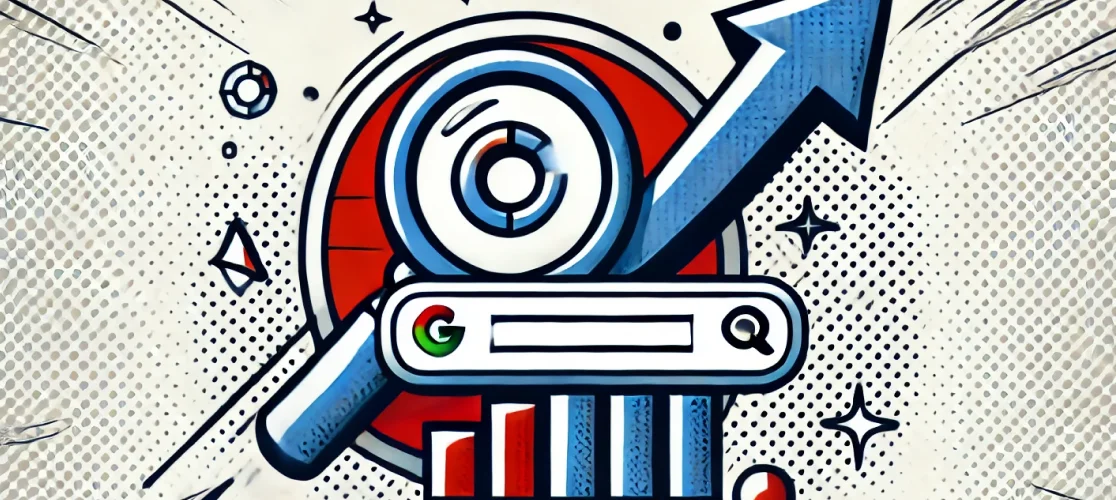
What is Google Ads Search Max?
Google Ads Search Max is an upcoming campaign type designed to enhance automated search advertising. While details are still emerging, Search Max is expected to leverage AI-driven automation to optimize ad placements, bidding strategies, and audience targeting more effectively than traditional search campaigns.
Google has not yet provided a full breakdown of how Search Max will function, but early insights suggest that it could be a blend of Performance Max and standard search campaigns, offering advertisers a more streamlined way to reach potential customers.
When Will Search Max Be Live?
As of now, Google has not made an official announcement regarding the exact launch date of Search Max. However, industry experts speculate that it could roll out sometime in the first half of 2025.
Since Search Max is still in development, Google may be testing it internally or with a limited group of advertisers before a full-scale release. Similar to previous campaign updates, Google is likely to introduce Search Max gradually, allowing advertisers to adapt before making it widely available
We will update this section as soon as Google provides official details about the launch of Search Max. Be sure to check back for the latest updates on when you can start using this new campaign type!
Why Is Search Max Campaign Type Coming?
The introduction of Search Max is a response to major shifts in AI-driven search technology and digital advertising trends. As artificial intelligence evolves, search engines are becoming more intuitive, personalized, and automated. With the rise of AI-powered search assistants and changing user behavior, Google is adapting its advertising solutions to keep up with the future of search.
AI’s Role in the Evolution of Search
AI-driven search experiences are rapidly changing the way users interact with search engines. Google AI Overviews enhance search by providing AI-generated summaries and understanding complex user queries. Instead of relying solely on traditional keyword matching, these advancements focus on contextual understanding and intent-based responses.
At the same time, alternative AI-powered search engines like Perplexity AI are gaining traction, offering users real-time, conversational search experiences with cited sources. This shift means advertisers need to rethink their strategies, as AI-driven search results prioritize relevance, user experience, and intent over simple keyword bidding.
In response to these developments, Google seems to be introducing Search Max to help advertisers adapt to the changing search landscape while also strengthening its position against growing competition. While details are still emerging, Search Max may aim to:
- Increased automation and AI-driven optimization
- Enhanced ad visibility in AI-powered search results
- A more integrated and adaptive advertising approach
Expected Features
Since Search Max is still in beta testing, Google has not released an official list of its features. However, based on early observations, this new campaign type is expected to focus heavily on AI automation, combining elements from Broad Match, Performance Max, and Dynamic Search Ads (DSA). Here’s what advertisers can likely expect:
1. AI-Driven Search Term Matching
Search Max is expected to move away from manual keyword selection and instead rely on Google’s AI to determine when and where ads appear. This could mean:
- A broader keyword reach, expanding beyond exact match terms.
- AI deciding search relevance, reducing advertiser control over targeting.
- More automated audience matching, similar to Performance Max.
While this could help increase reach, it also means advertisers will have less control over the exact search terms their ads show for.
2. Automated Ad Copy and Landing Page Selection
Google’s AI is expected to handle ad copy creation and URL selection, optimizing based on search intent. Likely features include:
- Dynamic text generation to match user queries.
- AI choosing the most relevant landing pages, similar to DSA.
- Less manual input from advertisers, making testing and optimization more automated.
This automation could save time but may also limit customization and brand control.
3. Full Integration with Smart Bidding
Search Max will likely require Smart Bidding, meaning:
- Real-time bid adjustments based on Google’s AI predictions.
- Campaigns optimized for conversions, ROAS, or other automated goals.
- Less ability to manually adjust bids, requiring advertisers to rely on Google’s system.
While Smart Bidding can improve performance, advertisers will need to closely monitor costs and results to avoid overspending.
The Future of Search Advertising
Search advertising is changing fast, and Google’s Search Max seems to be its latest move to keep up with AI-driven search trends. As more users interact with search engines in a conversational way, traditional keyword-based ads may no longer be enough. This is where Search Max may come in, offering a more automated, AI-powered approach to search campaigns.
If you’ve been running search campaigns for a while, you know how much control over keywords and bidding matters. But Search Max is expected to take a different route. Instead of manual keyword selection, Google’s AI may decide when and where ads appear, relying on broad data signals rather than exact search terms. This may help expand reach, but it also means advertisers could have less direct control over targeting.
Another key change may be automated ad copy and landing page selection. Google’s system may generate ad text and match it to relevant landing pages, similar to Dynamic Search Ads. While this may save time, it might also limit how much control brands have over their messaging.
Google hasn’t shared all the details yet, but one thing seems clear: automation may play a bigger role in search advertising. While this shift might make campaign management easier, it could also require advertisers to rethink their strategies.
For PPC specialists looking to stay ahead in this rapidly changing landscape, Adsby provides AI-powered solutions that simplify campaign management. With continuous updates and AI-driven optimizations tailored for search advertising, Adsby helps advertisers adapt to new features and automation trends. As Google introduces new capabilities like Search Max, having the right AI support may give advertisers an edge in managing bids, optimizing keywords, and improving overall performance.